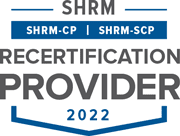Summary
This class is two mornings, offered in a participatory live-online format with brief prework.
Do you work with colleagues, customers, or partners who grew up in a different country or within a different culture than you? Increasingly, the U.S. workplace, no matter where it is located, is multinational and multicultural. You and your team need to know how to adjust communication styles and management strategies to avoid misunderstanding and conflict.
Communication across cultures often breaks down due to differences in cultural assumptions and practices that are not immediately visible and are frequently misinterpreted. This practical course will introduce you to proven tools that will enable you to grow your cultural intelligence (CQ). You will learn to identify and understand cultural differences between countries/groups and lay the foundation for strong intercultural communication that has immediate application both domestically and globally. You will also gain clear strategies for adjusting your verbal and nonverbal communication to minimize misunderstanding and build trust with diverse individuals and across groups.
Access to a tool that maps your personal cultural profile is included in the price of the course.
The book The Culture Map by Erin Meyer is recommended — not required, for participants to deepen their learning. It can be purchased at the author's website, Amazon and The Book Depository.
